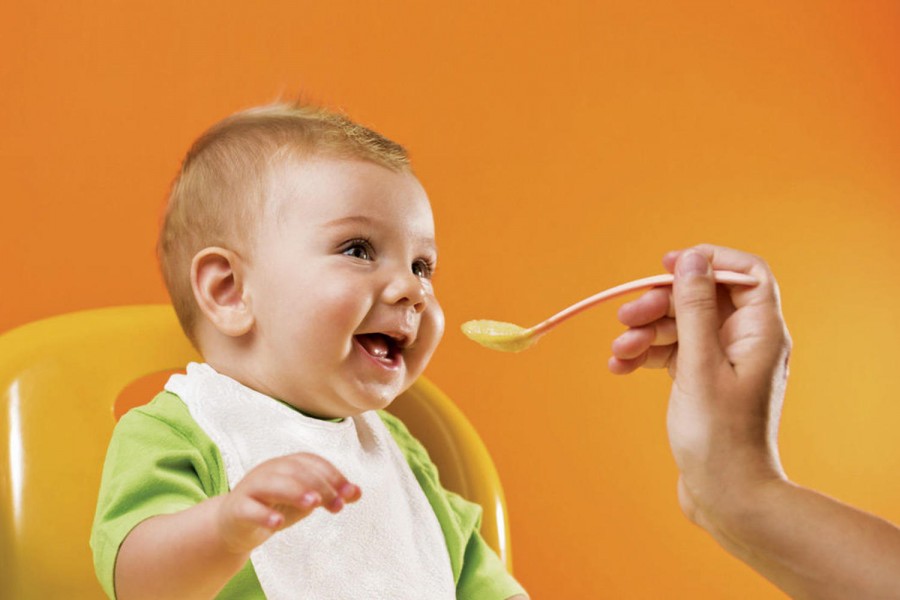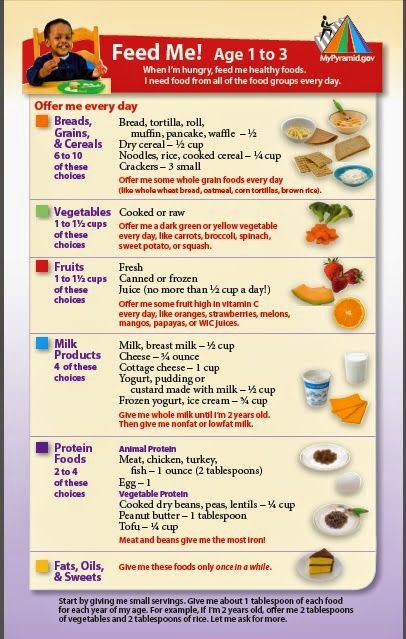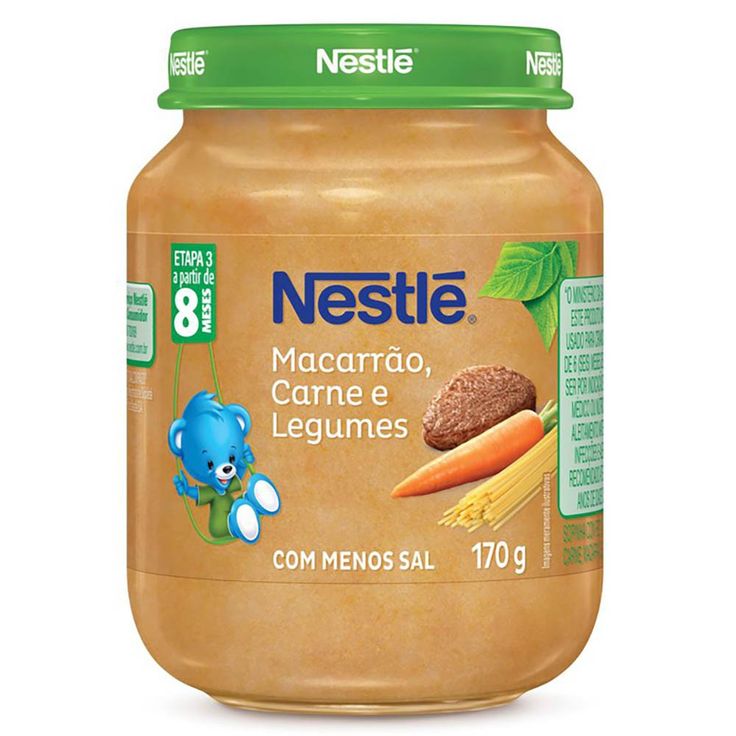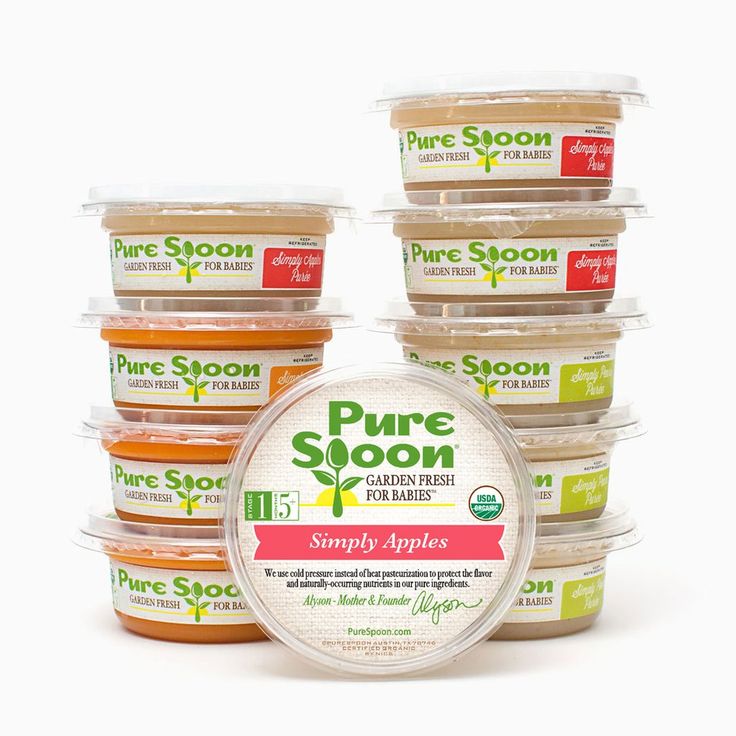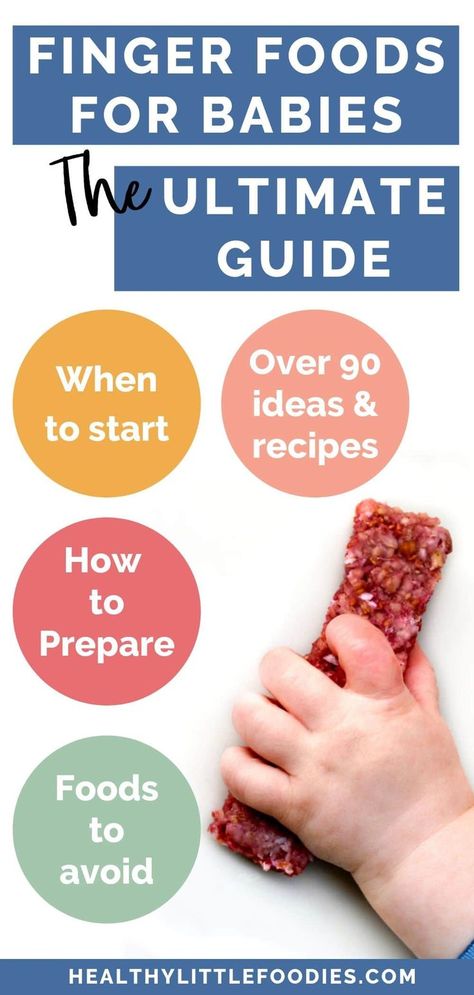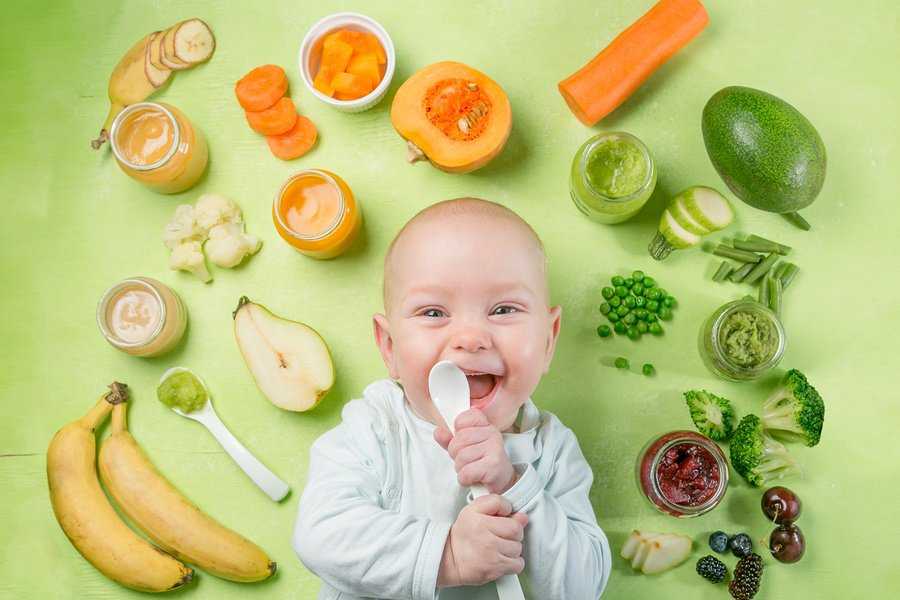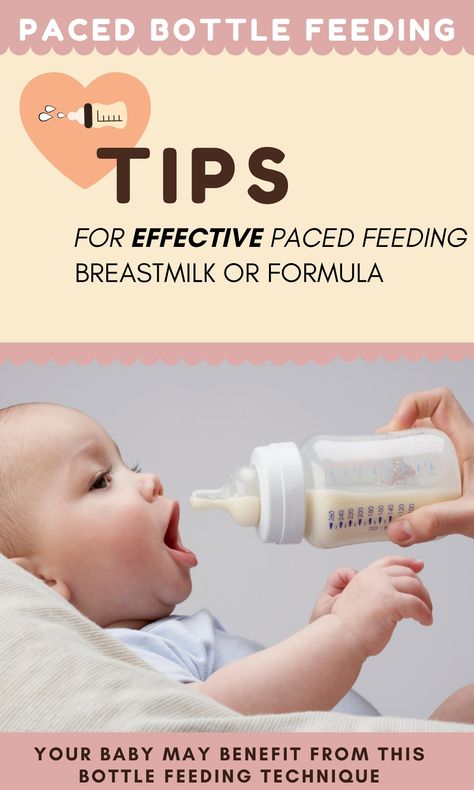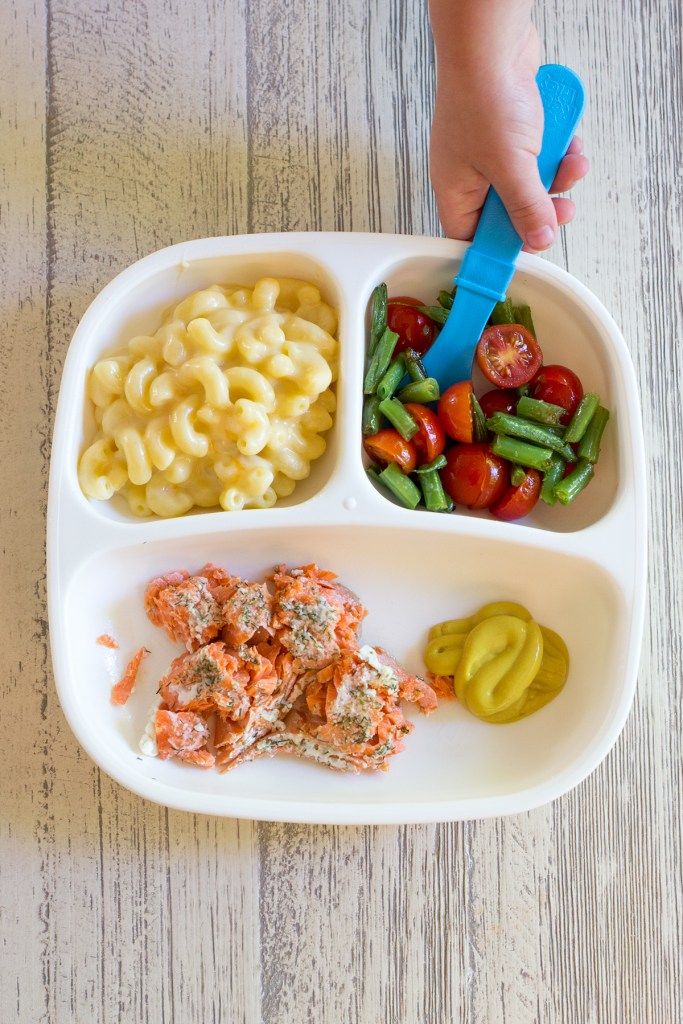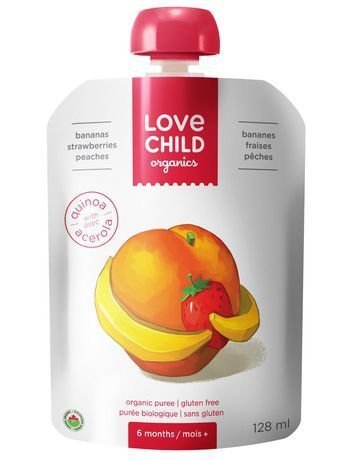Baby feeding nutrition
Baby's First Month: Feeding and Nutrition
Log in | Register
Ages & Stages
Ages & Stages
Your new baby's nutritional needs are greater than at any other time in their life. Feeding your infant provides more than just good nutrition, though. It also allows you to hold your newborn close, cuddle, and make eye contact. These are relaxing and enjoyable moments for you both, bringing you closer together.
Because of its nutritional composition and health-promoting properties, breast milk (also referred to as human milk) is the ideal food for human infants. With support, most women are able to successfully breastfeed their babies. If you are unable to breastfeed, infant formula is an acceptable and nutritious alternative to breast milk.
Breastmilk or formula should be your child's sole nutritional source for the first six months. When you add solid foods to your baby's diet, continue breastfeeding until at least 12 months or longer.
During this time, you and your pediatrician will need to pay attention to her pattern of feedings and make sure that she's getting enough for growth. (See, "How Often and How Much Should Your Baby Eat?") Regular checkups and monitoring of growth is the best way to ensure this.
Getting to know your baby's feeding patterns
Each baby has a particular style of feeding. Years ago researchers at Yale University playfully attached names to five common eating patterns. See if you recognize your baby's dining behavior among them.
- Barracudas get right down to business. As soon as they're put to the breast, they grasp the areola and suck energetically for ten to twenty minutes. They usually become less eager as time goes on.
- Excited ineffectives nursers become frantic at the sight of the breast.
 In a frenzied cycle they grasp it, lose it, and start screaming in frustration. They must be calmed down several times during each feeding. The key to nourishing this type of baby is to feed them as soon as they wake up, before they get desperately hungry. Also, if the milk tends to spray from the breast as the baby struggles, it may help to manually express a few drops first to slow the stream.
In a frenzied cycle they grasp it, lose it, and start screaming in frustration. They must be calmed down several times during each feeding. The key to nourishing this type of baby is to feed them as soon as they wake up, before they get desperately hungry. Also, if the milk tends to spray from the breast as the baby struggles, it may help to manually express a few drops first to slow the stream. - Procrastinators can't be bothered with nursing until the milk supply increases, commonly referred to as "coming in." These babies shouldn't be given bottles of water or formula, as feeding them bottles may make it more difficult to get them to nurse at the breast. You should continue to put them to the breast regularly, whenever they appear alert or make mouthing movements.
- Reluctant nursers sometimes benefit from being placed naked on the reclining mother's bare abdomen and chest for a period of time. They may spontaneously move toward the breast, or they can be placed on the breast after a time.
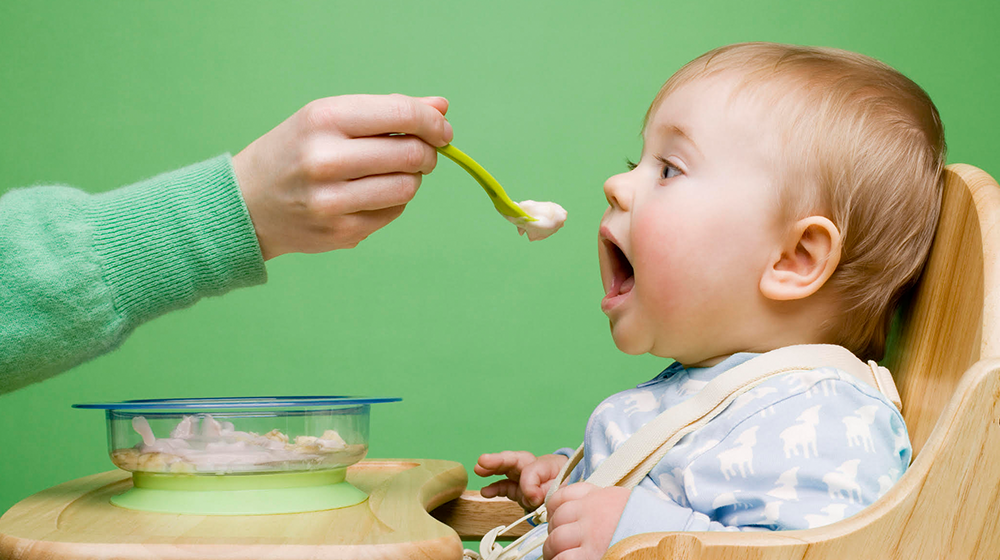 You may find advice on improved positioning and attachment from a lactation specialist helpful. For a baby who resists nursing for the first few days, you can use an electric pump between feedings to stimulate milk production. Just don't give up! Contact your pediatrician's office for assistance or referral to a lactation specialist.
You may find advice on improved positioning and attachment from a lactation specialist helpful. For a baby who resists nursing for the first few days, you can use an electric pump between feedings to stimulate milk production. Just don't give up! Contact your pediatrician's office for assistance or referral to a lactation specialist. - Gourmets or mouthers insist on playing with the nipple, tasting the milk first and smacking their lips before digging in. If hurried or prodded, they become furious and scream in protest. The best solution is tolerance. After a few minutes of playing, they do settle down and nurse well. Just be sure the lips and gums are on the areola and not on the nipple.
- Resters prefer to nurse for a few minutes, rest a few minutes, and resume nursing. Some fall asleep on the breast, nap for half an hour or so, and then awaken ready for dessert. This pattern can be confusing, but these babies cannot be hurried. The solution? It's best just to schedule extra time for feedings and remain as flexible as possible.
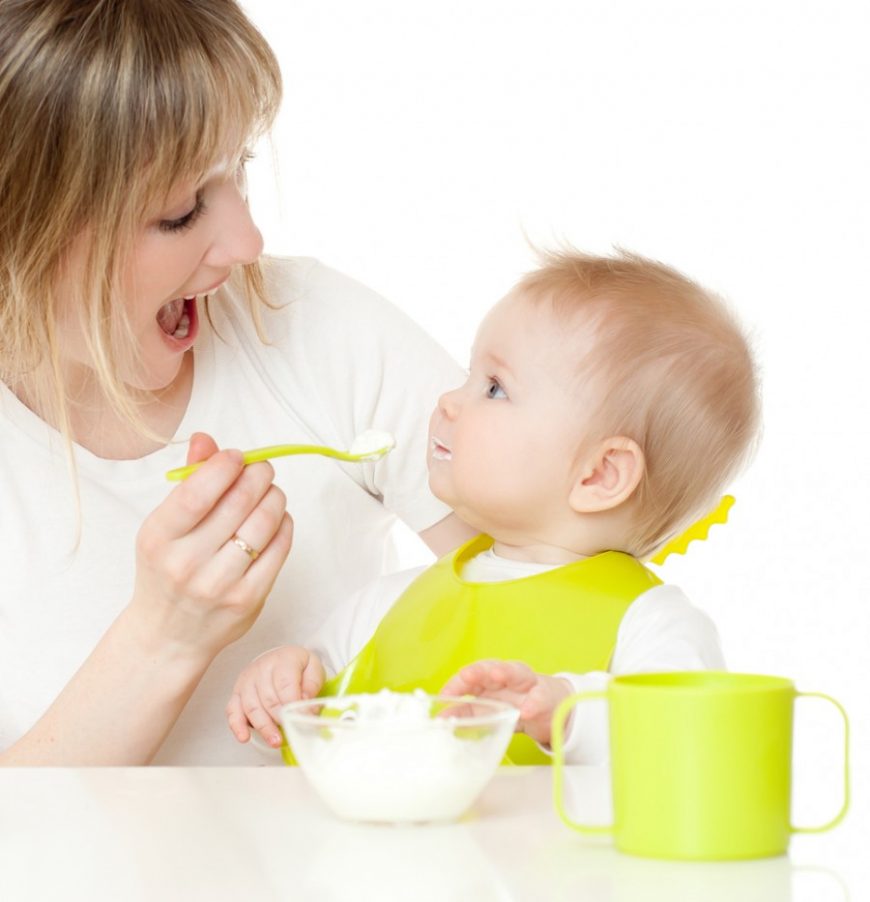
Remember
Learning your own baby's eating patterns is one of your biggest challenges in the weeks after delivery. Once you understand their patterns, you'll find it much easier to determine when they are hungry, when they have had enough, how often they need to eat, and how much time is required for feedings. It is generally best to initiate a feeding at the earliest signs of hunger, before the baby cries. Babies also have unique positions that they prefer.
Talk with your pediatrician if you have any questions or concerns about your baby's feeding and nutritional need.
More information
- How Often and How Much Should Your Baby Eat?
- How to Tell if Your Breastfed Baby is Getting Enough Milk
- Your Child's Checkups
The information contained on this Web site should not be used as a substitute for the medical care and advice of your pediatrician. There may be variations in treatment that your pediatrician may recommend based on individual facts and circumstances.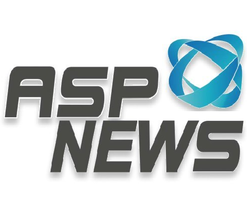
When can I start giving my baby peanut butter?
Log in | Register
Tips & Tools
Tips & Tools
Question
Answer
Many parents have questions and concerns about when peanut butter can be safely introduced, because it is the leading cause of fatal and near-fatal food allergic reactions in the United States.
New Guidelines on the Introduction of Allergenic Foods:
For many years, experts thought that the best way to fight peanut allergy was to avoid peanut products in the first years of life.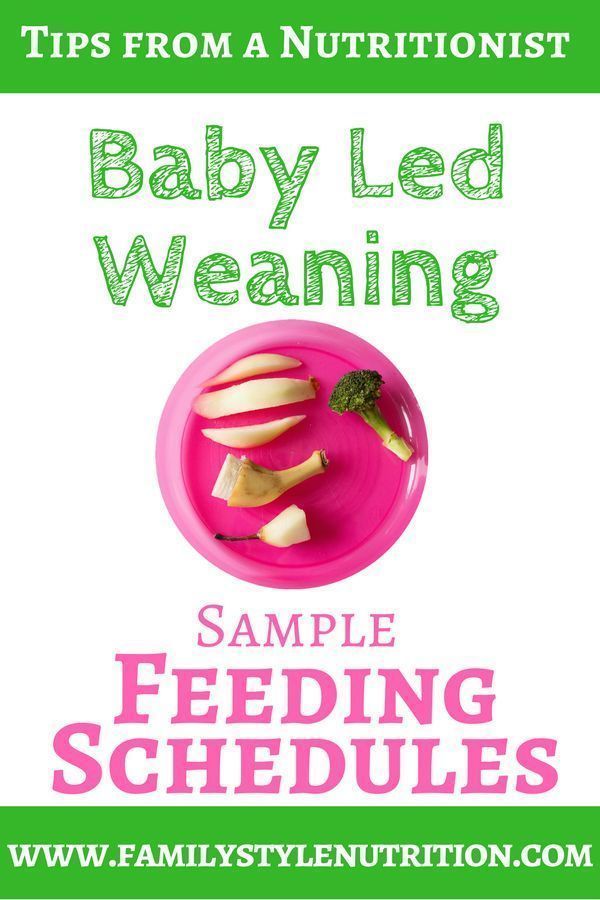 At the time, it was thought that delaying introduction would possibly prevent the development of other allergic conditions, especially eczema. However, more recent guidelines show that there is no benefit to delaying the introduction of allergenic foods. In 2015, an important study showed that early introduction and regular feeding of peanut prevented the development of peanut allergy in infants at "high risk" for peanut allergy (meaning infants who had severe eczema and/or an egg allergy).
At the time, it was thought that delaying introduction would possibly prevent the development of other allergic conditions, especially eczema. However, more recent guidelines show that there is no benefit to delaying the introduction of allergenic foods. In 2015, an important study showed that early introduction and regular feeding of peanut prevented the development of peanut allergy in infants at "high risk" for peanut allergy (meaning infants who had severe eczema and/or an egg allergy).
Advice to Parents:
Start solids with a few foods that are of low allergy risk—for example, infant cereal, puréed bananas, or puréed prunes. Give your baby one new food at a time, and wait at least 2 to 3 days before starting another. After each new food, watch for any allergic reactions such as diarrhea, rash, or vomiting. If any of these occur, stop using the new food and consult with your child's pediatrician.
If there is no special reason to be concerned that your baby is at increased risk for food allergies, after a few first foods have been tolerated, you can start to introduce the more highly allergenic foods (milk, egg, soy, wheat, peanut, tree nuts, fish, and shellfish).
 It is important that these—and all foods—are in forms and textures appropriate for infants. For instance, while whole cow's milk is not recommended before 1 year of age; you may introduce processed dairy products such as whole milk yogurt or Greek yogurt mixed with a fruit that your baby has already had in his or her diet.
It is important that these—and all foods—are in forms and textures appropriate for infants. For instance, while whole cow's milk is not recommended before 1 year of age; you may introduce processed dairy products such as whole milk yogurt or Greek yogurt mixed with a fruit that your baby has already had in his or her diet. If your baby has or had severe, persistent eczema or an immediate allergic reaction to any food— especially if it is a highly allergenic food such as egg—he or she is considered "high risk for peanut allergy." You should talk to your child's pediatrician first to best determine how and when to introduce the highly allergenic complementary foods. Ideally peanut-containing products should be introduced to these babies as early as 4 to 6 months. It is strongly advised that these babies have an allergy evaluation or allergy testing prior to trying any peanut-containing product. Your doctor may also require the introduction of peanuts be in a supervised setting (e.
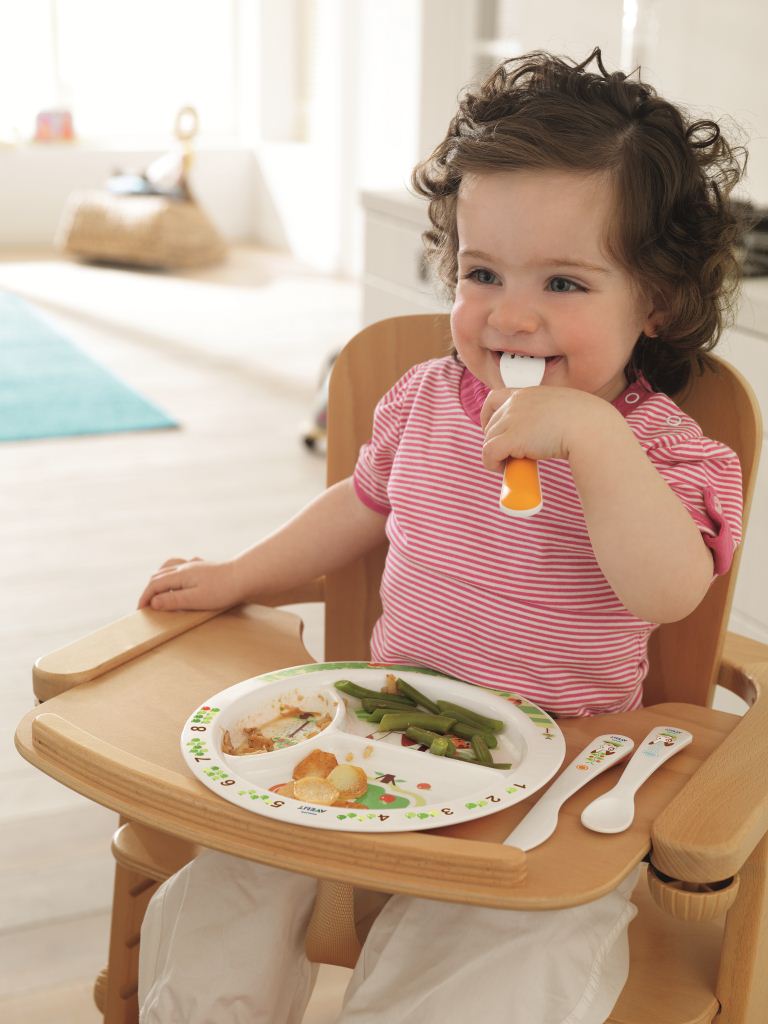 g., in the doctor's office).
g., in the doctor's office). Babies with mild to moderate eczema are also at increased risk of developing peanut allergy. These babies should be introduced to peanut-containing products around 6 months of age; peanut-containing products should be maintained as part of their diet to prevent a peanut allergy from developing. These infants may have peanut introduced at home (after other complementary foods are introduced), although your pediatrician may recommend an allergy evaluation prior to introducing peanut.
Babies without eczema or other food allergies, who are not at increased risk for developing an allergy, may start having peanut-containing products and other highly allergenic foods freely after a few solid foods have already been introduced and tolerated without any signs of allergy. As with all infant foods, allergenic foods should be given in age- and developmentally-appropriate safe forms and serving sizes.
Choking Prevention:
Whole peanuts themselves are choking hazards and should not be fed to babies.
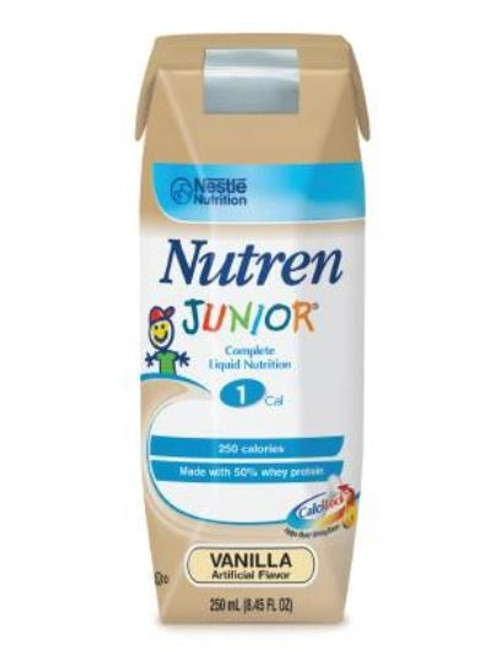 They can block the air passages, and if whole or partially chewed peanuts are inhaled into the lungs, they can cause a severe and possibly fatal chemical pneumonia. Avoid whole peanuts until your child is old enough to be counted on to chew them well (usually at least 4 years and up).
They can block the air passages, and if whole or partially chewed peanuts are inhaled into the lungs, they can cause a severe and possibly fatal chemical pneumonia. Avoid whole peanuts until your child is old enough to be counted on to chew them well (usually at least 4 years and up). A good way to introduce peanut in infancy would be mixing and thinning-out a small amount of peanut butter in cereal or yogurt. Dissolving peanut butter puffs with breast milk or formula and feeding it by spoon is another good option.
Remember:
The highly allergenic foods should initially be given to your baby in small tastes at home, and the amount can gradually be increased in a developmentally appropriate manner if there are no signs of intolerance or allergic symptoms.
NOTE: The AAP recommends breastfeeding as the sole source of nutrition for your baby for about 6 months. When you add solid foods to your baby's diet, continue breastfeeding until at least 12 months. You can continue to breastfeed after 12 months if you and your baby desire. Check with your child's doctor about vitamin D and iron supplements during the first year. Remember that each child's readiness for solid foods depends on his own rate of development.
You can continue to breastfeed after 12 months if you and your baby desire. Check with your child's doctor about vitamin D and iron supplements during the first year. Remember that each child's readiness for solid foods depends on his own rate of development.
Additional Information & Resources:
Working Together: Breastfeeding and Solid Foods
Sample Menu for an 8 to 12 Month Old
Infant Allergies and Food Sensitivities
Peanut Allergies: What You Should Know About the Latest Research
- The Effects of Early Nutritional Interventions on the Development of Atopic Disease in Infants and Children: The Role of Maternal Dietary Restriction, Breastfeeding, Hydrolyzed Formulas, and Timing of Introduction of Allergenic Complementary Foods (AAP Clinical Report)
The information contained on this Web site should not be used as a substitute for the medical care and advice of your pediatrician.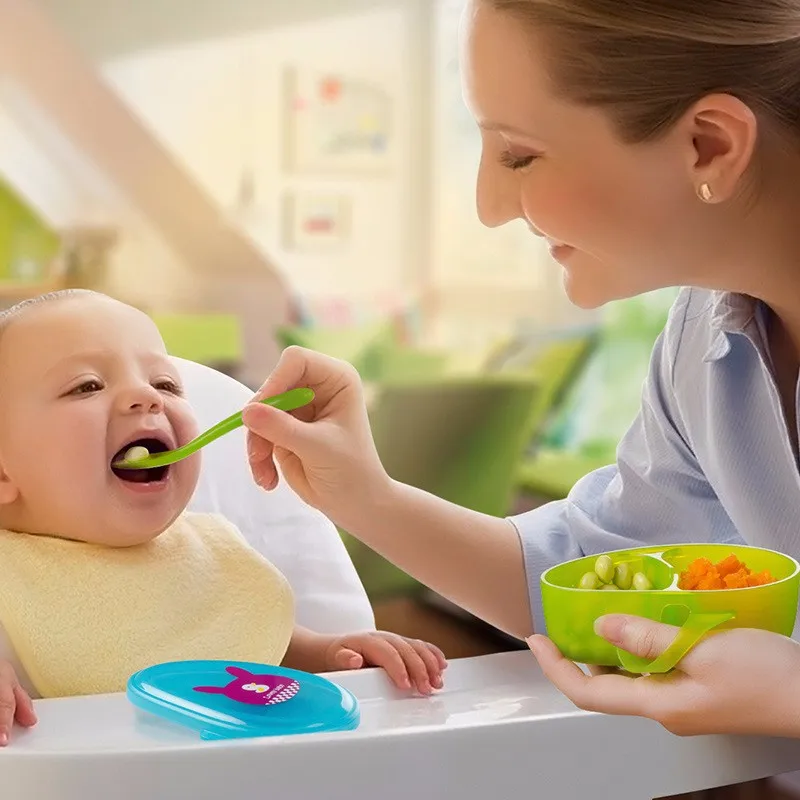 There may be variations in treatment that your pediatrician may recommend based on individual facts and circumstances.
There may be variations in treatment that your pediatrician may recommend based on individual facts and circumstances.
Follow Us
Back to Top
What to eat while breastfeeding | Breastfeeding Diet
You know that breast milk is the best food for your baby. What about your own nutrition while breastfeeding? We asked the nutritionist a few questions about the nutrition of a nursing mother.
Share this information
Priya Tew, UK-based registered dietitian :
Priya is a nutritionist, M.D., multi-award winning member of the British Dietetic Association and the Health Professions Council. She has three children, and she breastfed each of them for up to 18 months. nine0003
During breastfeeding, there is no need to follow a special diet, the main thing is that your diet is balanced. It should include plenty of fruits and vegetables, whole grains such as oats, brown rice, various cereals, and breads labeled "whole grain", "wholemeal" or "wholemeal".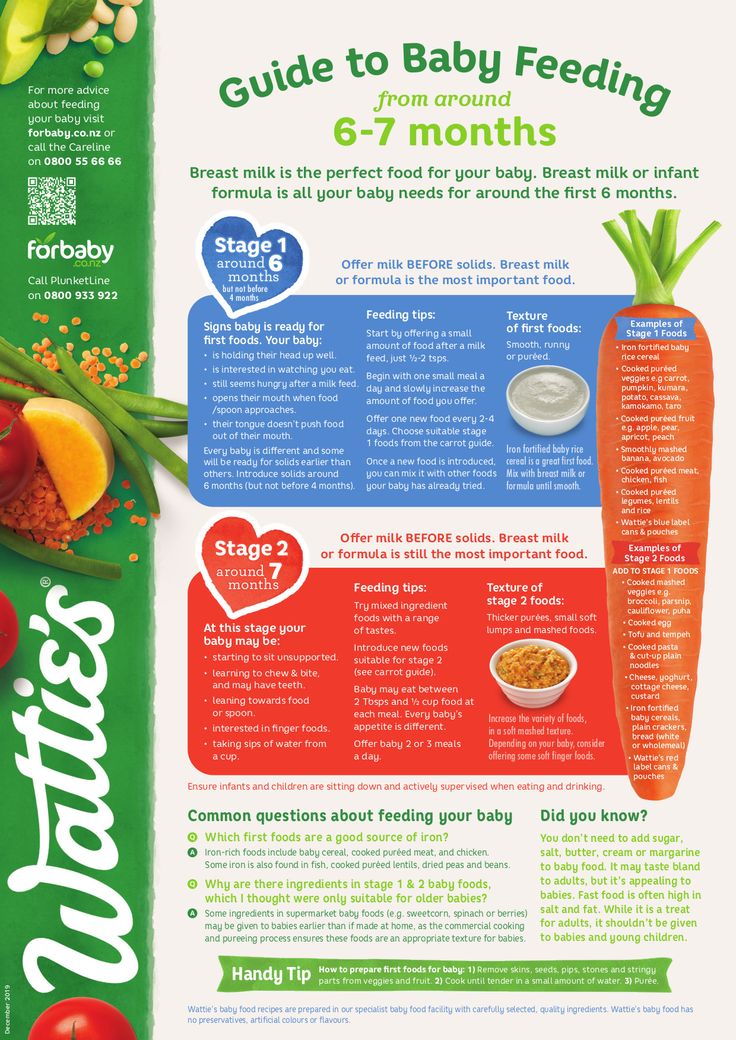 These foods, along with potatoes, pasta, and couscous, are high in starch, an important source of energy.
These foods, along with potatoes, pasta, and couscous, are high in starch, an important source of energy.
In addition, you need lean proteins found in chicken, eggs, legumes, lentils, fish, and lean beef, as well as healthy fats found in olive oil, nuts, seeds, avocados, and fatty fish such as salmon and mackerel. Oily fish is very good for your health and development of your baby, but you should not eat more than two servings per week (about 140 g), as it may contain harmful impurities. nine0014 1
Should I take vitamins while breastfeeding?
The most important is vitamin D. It is essential for healthy bones, you and your baby. We get most of this vitamin from the sun. If you live in a region with insufficient solar activity, especially in winter, your body may lack it. In this case, the doctor may advise taking vitamin D supplements. 2
You also need to get enough calcium, as it is excreted from the body during breastfeeding. nine0014 3 Try to eat four servings of foods rich in this mineral a day. These can be dairy products such as milk, yogurt, and cheese, or non-dairy products such as nuts, tofu, sesame seeds, and leafy vegetables. One serving may consist of, for example, half a cup of green vegetables or a small piece of cheese (50 g).
These can be dairy products such as milk, yogurt, and cheese, or non-dairy products such as nuts, tofu, sesame seeds, and leafy vegetables. One serving may consist of, for example, half a cup of green vegetables or a small piece of cheese (50 g).
What foods should I avoid while breastfeeding?
The good news is that you can eat almost anything while breastfeeding. Only the consumption of oily fish should be limited. In small quantities, even caffeine is acceptable - more on this below. nine0003
If you are not allergic to peanuts, there is no reason to deny yourself products that contain peanuts. Recent studies show that if you eat peanuts while breastfeeding and gradually introduce them into your baby's diet during the first year, your baby will be less likely to become allergic to them in the future. 4
Are extra calories needed while breastfeeding?
Breastfeeding mothers need about 500 more calories a day. nine0014 5 But every mother is unique and your energy needs will change throughout your breastfeeding period. The number of calories you need depends on your baby's age, appetite, height, and weight, as well as your body mass index (BMI), your activity, and factors such as whether you are exclusively breastfeeding or not, and whether you are breastfeeding twins or multiple babies.
The number of calories you need depends on your baby's age, appetite, height, and weight, as well as your body mass index (BMI), your activity, and factors such as whether you are exclusively breastfeeding or not, and whether you are breastfeeding twins or multiple babies.
Can I go on a diet while breastfeeding?
Trying to lose weight while breastfeeding is not a good idea because you need to get enough nutrients for you and your baby. The fat accumulated during pregnancy is used to produce milk, so breastfeeding in itself will help you shed those extra pounds. nine0003
If your weight changes by more than 1 kg per week, check if you are eating a healthy and balanced diet and adjust if necessary. You can also ask your doctor for advice.
How can I find time to prepare healthy meals?
Having devoted yourself to feeding a child, you can forget about your own nutrition. However, it is important to ensure that your diet does not consist only of sweets and cookies.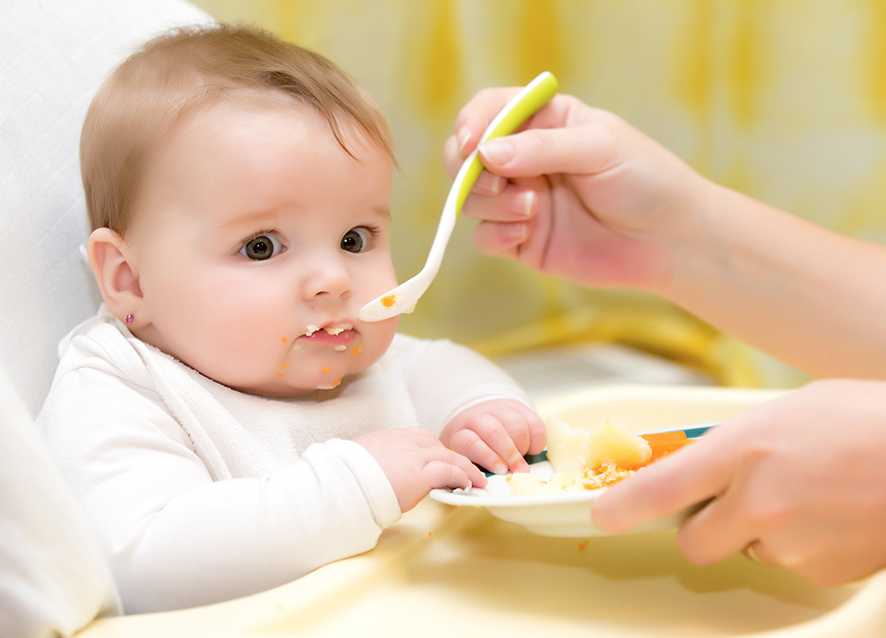 Of course, sweet snacks are easy and quick, but they do not bring any benefit to your body. nine0003
Of course, sweet snacks are easy and quick, but they do not bring any benefit to your body. nine0003
Opt for quick yet nutritious meals like scrambled eggs with spinach or fried chicken with brown rice. Oatmeal is great for breakfast, as it provides a slow release of energy from grains and soluble dietary fiber, which is what you need to restore strength in the morning after a night of breastfeeding.
Store pre-cut fruits and vegetables in the refrigerator for light snacks, or carry unsalted nuts in your bag. It's much easier than peeling tangerines with one hand while holding a baby with the other. nine0003
Should I drink more water while breastfeeding?
Breastfeeding can make you thirsty, so it's important to drink enough water. A person needs six to eight glasses of fluid a day, and even more if breastfeeding. 6 Make it a habit to drink a glass of water, milk or fruit juice without sugar every time you feed your baby.
I love coffee. Do I need to quit caffeine?
Coffee, like everything you eat or drink, passes into your breast milk, so it is advisable to limit your intake while breastfeeding.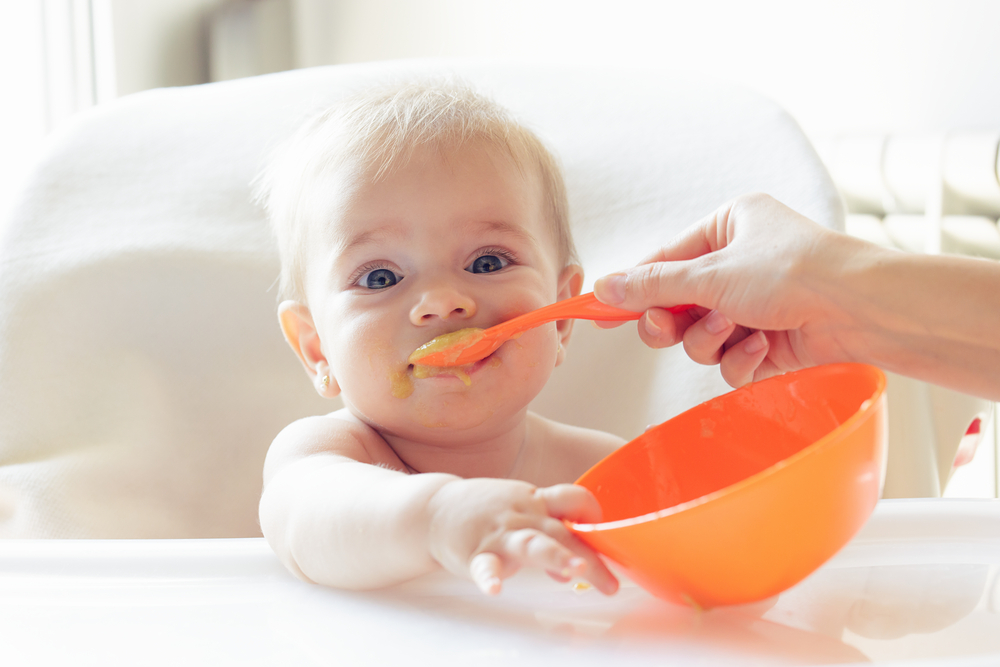 Legal coffee limits vary by country, but the average recommendation is not to exceed 200-300 mg of caffeine per day (300 mg is equivalent to two cups of filtered coffee or four cups of tea). Talk to your doctor about the acceptable amount of coffee consumption for you. Also, don't forget that caffeine is found in cola and energy drinks, and a small bar of dark chocolate can contain up to 50 mg. nine0014 7
Legal coffee limits vary by country, but the average recommendation is not to exceed 200-300 mg of caffeine per day (300 mg is equivalent to two cups of filtered coffee or four cups of tea). Talk to your doctor about the acceptable amount of coffee consumption for you. Also, don't forget that caffeine is found in cola and energy drinks, and a small bar of dark chocolate can contain up to 50 mg. nine0014 7
If I eat a varied diet, will my baby be less picky?
Breast milk has the flavor of everything you eat. 8 Therefore, if you eat a variety of foods during breastfeeding, giving your baby different tastes to try, he may like them in the future.
If you like spicy and spicy foods, there is no reason to refuse them while breastfeeding. When my first child was born, I ate a lot of spicy food. When my daughter was two years old, we went to Sri Lanka, coincidence or not, but she ate absolutely everything. nine0003
Can something in my diet not be suitable for a child?
At an early age, babies often suffer from colic or are picky eaters, so mothers naturally wonder if their diet is causing this. Most likely no. Studies show that the proportion of children who are allergic to any component of breast milk is only slightly more than 1%. 9 Cow's milk, eggs, corn, and soy proteins in moms' diets are much more likely to cause allergic reactions than spicy foods, hot sauces, or cruciferous vegetables, which moms usually worry about. nine0003
Most likely no. Studies show that the proportion of children who are allergic to any component of breast milk is only slightly more than 1%. 9 Cow's milk, eggs, corn, and soy proteins in moms' diets are much more likely to cause allergic reactions than spicy foods, hot sauces, or cruciferous vegetables, which moms usually worry about. nine0003
If your baby is allergic to substances in your milk, it can cause profuse vomiting, rash, bloody stools, or prolonged constipation. If your baby has an intolerance to any food, you will notice symptoms such as moodiness and crying after feeding, burping, diarrhea, or the baby will press his knees to his chest. Contact your doctor if something is bothering you. He may suggest eliminating certain foods for a couple of weeks, and then see if the child's behavior changes after eating them again. nine0003
You can also keep a food diary: write down everything you eat and drink, as well as your child's symptoms, and you may notice some patterns. However, before cutting out any foods, such as dairy, always check with your doctor, as it's important to know that you're getting the nutrients you need from other sources. Depending on where you live, you will be referred to a nutritionist or other specialist.
However, before cutting out any foods, such as dairy, always check with your doctor, as it's important to know that you're getting the nutrients you need from other sources. Depending on where you live, you will be referred to a nutritionist or other specialist.
Does a vegetarian diet affect breast milk? nine0018
If you are getting enough calories and all the nutrients your body needs (carbohydrates, proteins, fats, vitamins and minerals), then you have nothing to worry about. A vegetarian or vegan diet requires plenty of vitamin B12, vitamin D, calcium, and omega-3 fatty acids while breastfeeding, so opt for foods and supplements that provide you with these essential nutrients.
If you are on a vegetarian, vegan, macrobiotic, or other special diet, you may need additional medical advice to make sure you are getting all the nutrients your baby needs. nine0003
Literature
1 National Health Service (NHS) [Internet]. Burnley, UK: Department of Health; 2018.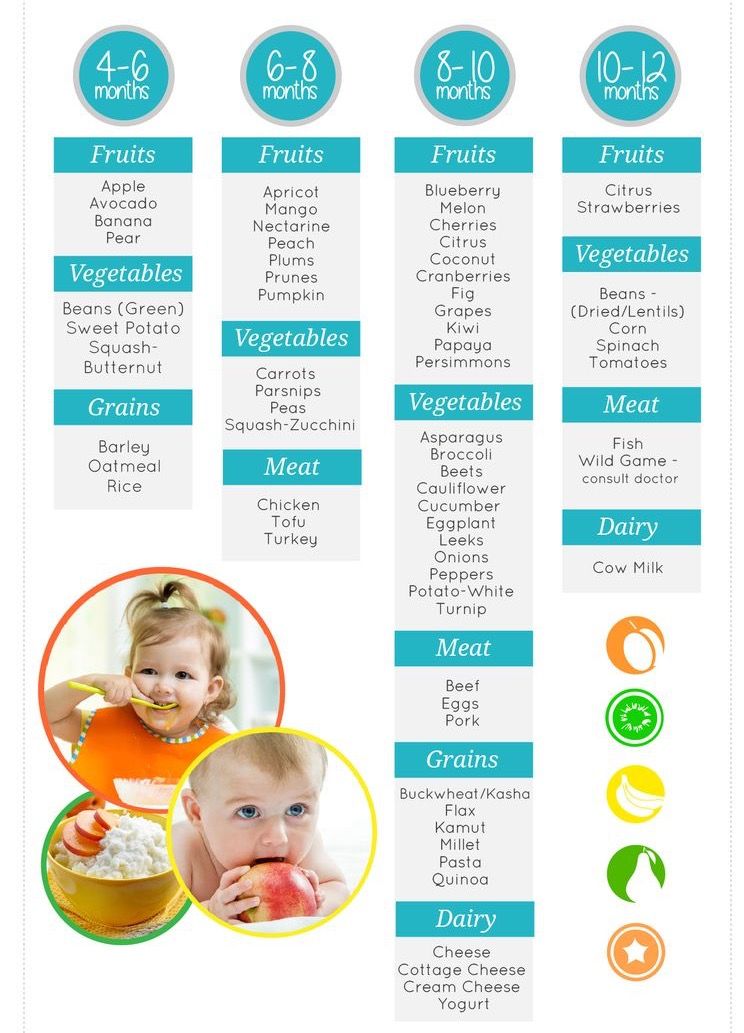 Should pregnant and breastfeeding women avoid some types of fish?; 2015 Jul 06 [cited 2018 Apr 12]; Available from: https://www.nhs.uk/chq/Pages/should-pregnant-and-breastfeeding-women-avoid-some-types-of-fish.aspx - National Health Service (NHS) [Internet]. Burnley, UK: Department of Health; 2018. "Should a pregnant and lactating woman refrain from eating certain types of fish?"; July 6, 2015 [cited April 12, 2018]; See article on site https://www.nhs.uk/chq/Pages/should-pregnant-and-breastfeeding-women-avoid-some-types-of-fish.aspx
Should pregnant and breastfeeding women avoid some types of fish?; 2015 Jul 06 [cited 2018 Apr 12]; Available from: https://www.nhs.uk/chq/Pages/should-pregnant-and-breastfeeding-women-avoid-some-types-of-fish.aspx - National Health Service (NHS) [Internet]. Burnley, UK: Department of Health; 2018. "Should a pregnant and lactating woman refrain from eating certain types of fish?"; July 6, 2015 [cited April 12, 2018]; See article on site https://www.nhs.uk/chq/Pages/should-pregnant-and-breastfeeding-women-avoid-some-types-of-fish.aspx
2 Oberhelman SS et al. Maternal vitamin D supplementation to improve the vitamin D status of breast-fed infants: a randomized controlled trial. Mayo Clin Proc. 2013;88(12):1378–1387. - Oberhelman S.S. et al., Introduction of Vitamin D to the Diet of Nursing Mothers to Increase Vitamin D in children: a randomized controlled trial. Mayo Klin Prok.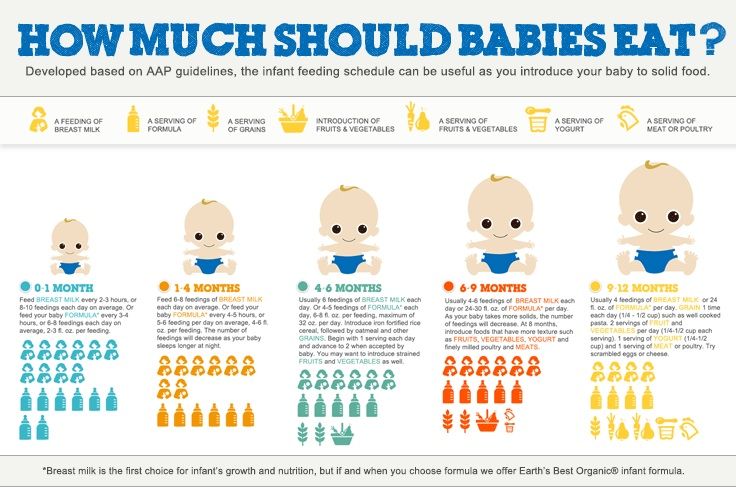 2013;88(12):1378–1387. : effects on the mother and the fetus. Am J Obstet Gynecol. 2006;194(4):937-945. - Thomas M., Weisman S. M., "Calcium supplementation during pregnancy and lactation: effects on the mother and on the fetus". Am J Obstet Ginekol (American Journal of Obstetrics and Gynecology). 2006;194(4):937-945.
2013;88(12):1378–1387. : effects on the mother and the fetus. Am J Obstet Gynecol. 2006;194(4):937-945. - Thomas M., Weisman S. M., "Calcium supplementation during pregnancy and lactation: effects on the mother and on the fetus". Am J Obstet Ginekol (American Journal of Obstetrics and Gynecology). 2006;194(4):937-945.
4 Pitt et al Reduced risk of peanut sensitization following exposure through breast-feeding and early peanut introduction. J Allergy Clinic Immunol. 2018;141(2):620-625. e 1 - Pitt et al., "Reducing the Risk of Peanut Allergy by Introducing Peanuts into the Breastfeeding Mother's Diet and as a Baby's First Food." nine0095 G Allergy Clean Immunol. 2018;141(2):620-625.e1
5 Dewey KG. Energy and protein requirements during lactation. Annu Rev Nutr. 1997 Jul;17(1):19-36. - Dewey K. J., "Energy and Protein Requirements During Lactation". Anna Rev Nutr . 1997 Jul;17(1):19-36.
J., "Energy and Protein Requirements During Lactation". Anna Rev Nutr . 1997 Jul;17(1):19-36.
6 Food Standards Agency (FSA) [Internet]. London, UK: Crown copyright 2002. Eating for breastfeeding; [cited 2018 Apr 13]; Available from: https://www.food.gov.uk - Food Standards Agency (FSA) [Internet]. London, UK: State Copyright 2002. "Eat to feed" [cited April 13, 2018]. See article on https://www.food.gov.uk
7 National Health Service (NHS) [Internet]. Burnley, UK: Department of Health; 2018. Breastfeeding and diet; 2016 Jan 29 [cited 2018 Apr 12]; Available from: https://www.nhs.uk/conditions/pregnancy-and-baby/breastfeeding-diet - National Health Service (NHS) [Internet]. nine0095 Burnley, UK: Department of Health 2018. Breastfeeding and Diet; 29 January 2016 [cited 12 April 2018] See article at https://www.nhs.uk/conditions/pregnancy -and-baby/breastfeeding-diet
8 Mennella JA et al. A. et al., Prenatal and postnatal recognition of odors in children. Pediatrix (Pediatrics). 2001;107(6):e88.
A. et al., Prenatal and postnatal recognition of odors in children. Pediatrix (Pediatrics). 2001;107(6):e88.
9 Academy of Breastfeeding Medicine. ABM clinical protocol# 24: allergic proctocolitis in the exclusively breastfed infant. Breastfeed Med . 2011;6(6). - Academy of Breastfeeding Medicine. "AVM Clinical Protocol #24: Allergic Proctocolitis in an Exclusively Breastfed Child". Brestfeed Med (Breastfeeding Medicine). 2011;6(6). nine0095
why a mother's diet should be balanced, what foods are not allowed, and which are possible with breastfeeding
Are there any dietary restrictions for a nursing mother? Are there really forbidden foods that can cause allergies in a child?
The maternity hospital gave you a diet to follow while breastfeeding. How strictly should it be followed? Do I need to increase portions and drink more fluids to get a lot of milk? I also heard that some products, such as lemons, can spoil the taste of milk, and the child will refuse to breastfeed altogether.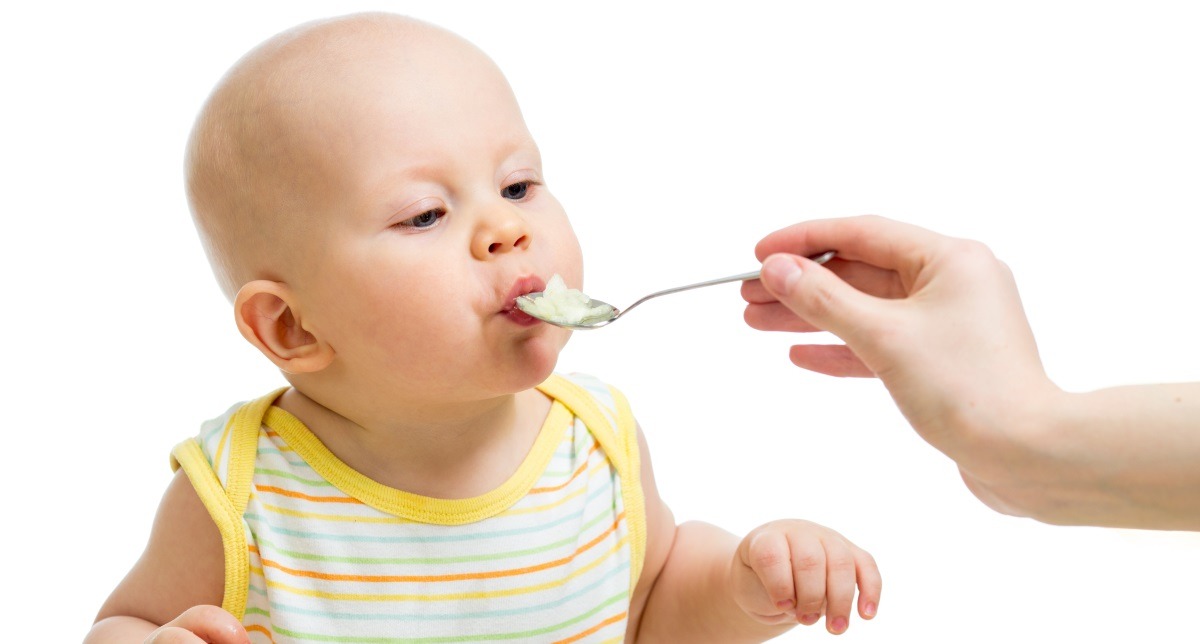 It's true? nine0003
It's true? nine0003
Vika Vishnyakova
nutritionist
Author profile
The diet of a nursing mother is an old myth that still lives in some Russian maternity hospitals and children's clinics.
The more varied the mother's diet during breastfeeding, the more health bonuses both she and her baby will receive. Most likely, with a balanced and varied diet, your weight will return to pre-pregnancy, but even if this has not happened yet, the breastfeeding period is not the best time to lose weight. You need to provide yourself and your baby with the proper level of nutrients, and this is difficult to do on rigid diets. nine0003
However, there are still foods that you should stay away from. I'll tell you more about everything.
What the science says about nutrition during breastfeeding
The diet of a nursing mother appeared at a time when knowledge about the nature of allergies was not enough. Not fully understanding the whole mechanism of its appearance, doctors, just in case, postponed acquaintance with potential allergens until later.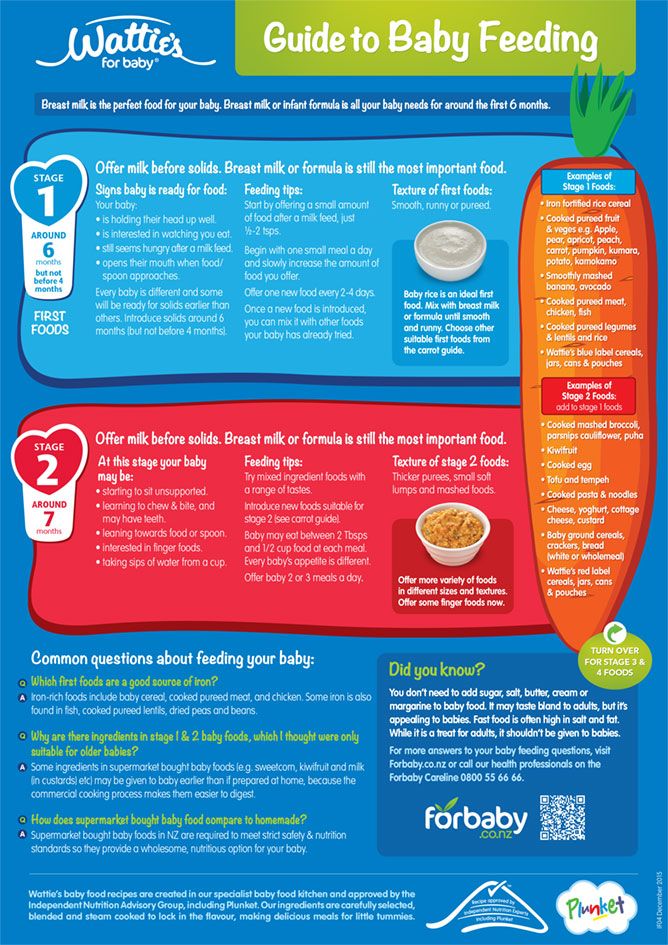 It was believed that by the age of three, the child's immune system would mature and be able to withstand the encounter with the allergen. nine0003
It was believed that by the age of three, the child's immune system would mature and be able to withstand the encounter with the allergen. nine0003
What to do? 08/13/20
What should I do if I suspect I have an allergy?
In reality, everything turned out differently: the earlier the child got acquainted with the potential allergen, the lower was the risk that he would develop an allergy. In modern recommendations for the diagnosis and treatment of food allergies in children, mothers are advised not to limit the diet, but to try to make it more varied.
Guidelines for the Diagnosis and Management of Food Allergy in Children - KFAPDF, KB 361
This is the position of leading child health organizations: the best nutrition for a mother during breastfeeding is a balanced and varied diet.
Healthy Diet During Pregnancy and Breastfeeding - WHO European OfficePDF, KB 93
Breastfeeding Diet - US Centers for Disease Control and Prevention
all five food groups:
- Vegetables and fruits.
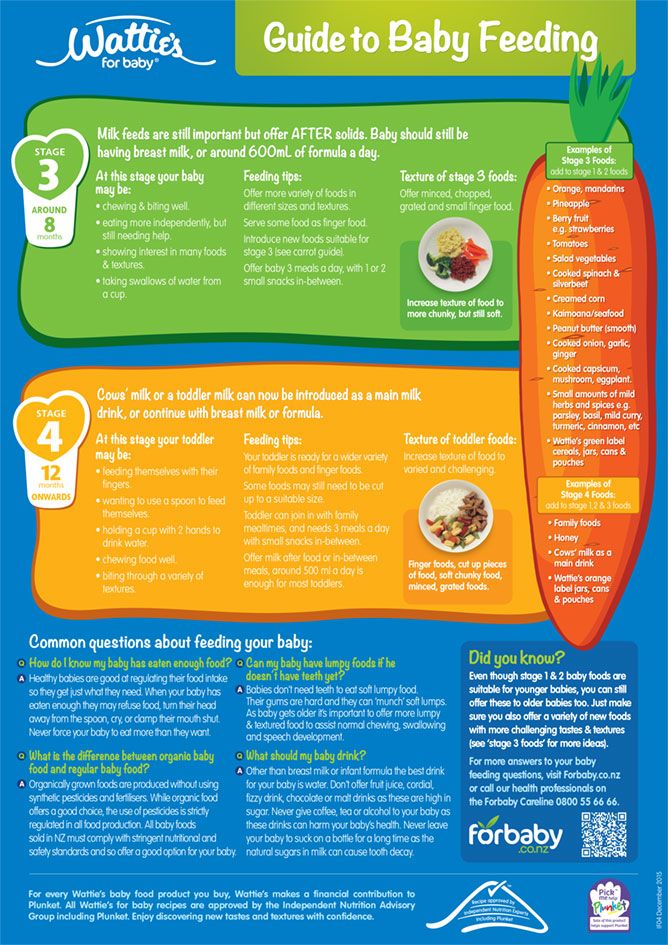
- Complex carbohydrates: cereals, bread, potatoes.
- Protein sources.
- Dairy products.
- Fats and oils.
And you also need to maintain diversity in each group. For example, eat vegetables and fruits of different colors, use not only meat, but also fish, eggs and legumes with nuts from protein sources.
Breastfeeding Mom's Diet Advice - US Department of Health
And the ratio of animal to vegetable proteins should be approximately the same. Among complex carbohydrates, you should give preference to whole grains and also do not forget about diversity. It turns out that buckwheat and boiled turkey for breakfast, lunch and dinner every day is not a healthy diet option for mom. nine0003
Breastfeeding - European Community of Pediatrics, Gastroenterologists, Hepatologists and Nutritionists Commentary
Health Canada Diet If your diet is balanced and varied, do not take supplements or multivitamins, except for vitamin D.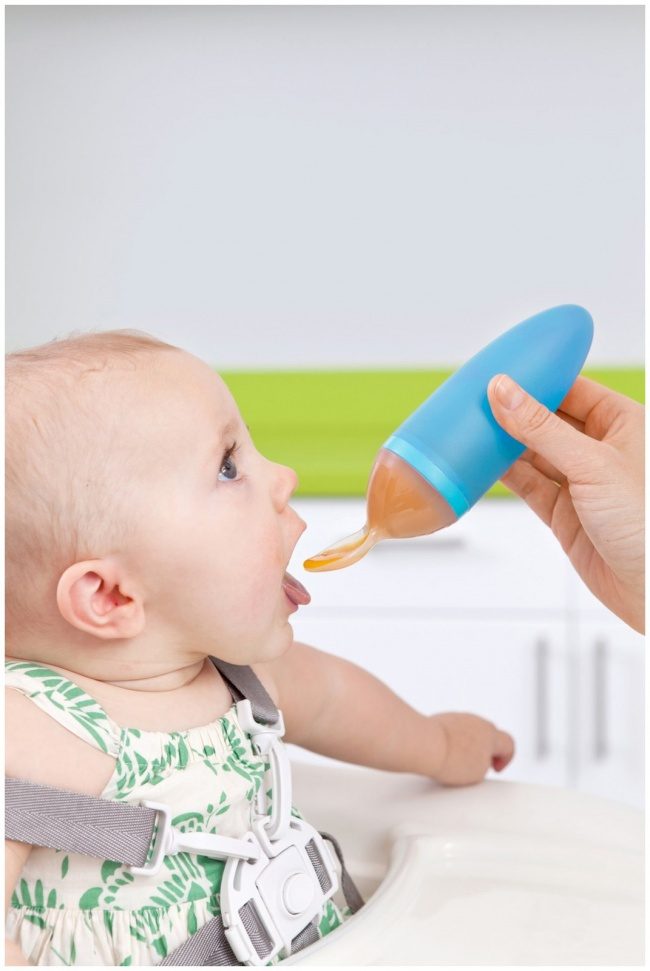 They are needed in rare cases when the diet of a nursing mother is poor or there are health problems. But the doctor should prescribe the composition and dosage of supplements during breastfeeding.
They are needed in rare cases when the diet of a nursing mother is poor or there are health problems. But the doctor should prescribe the composition and dosage of supplements during breastfeeding.
Your appetite will probably increase, this is normal. The US Centers for Disease Control and Prevention estimates that a breastfeeding mother may need up to 500 calories in excess of her usual calorie intake to ensure adequate milk supply. But those 500 calories should come from healthier food sources, not soda chips.
/guide/vitamins/
Vitamins: what foods contain and how to supplement
Why a balanced diet is important
Such a diet will help maintain the health of the mother and provide the necessary nutrients to the child. During breastfeeding, it is important to provide yourself with the proper amount of energy, protein, and some important micronutrients: iron, calcium, vitamin D, and folic acid.
These micronutrients may not be enough, because during pregnancy and the onset of breastfeeding, some of them are spent on the needs of the fetus, and then the baby.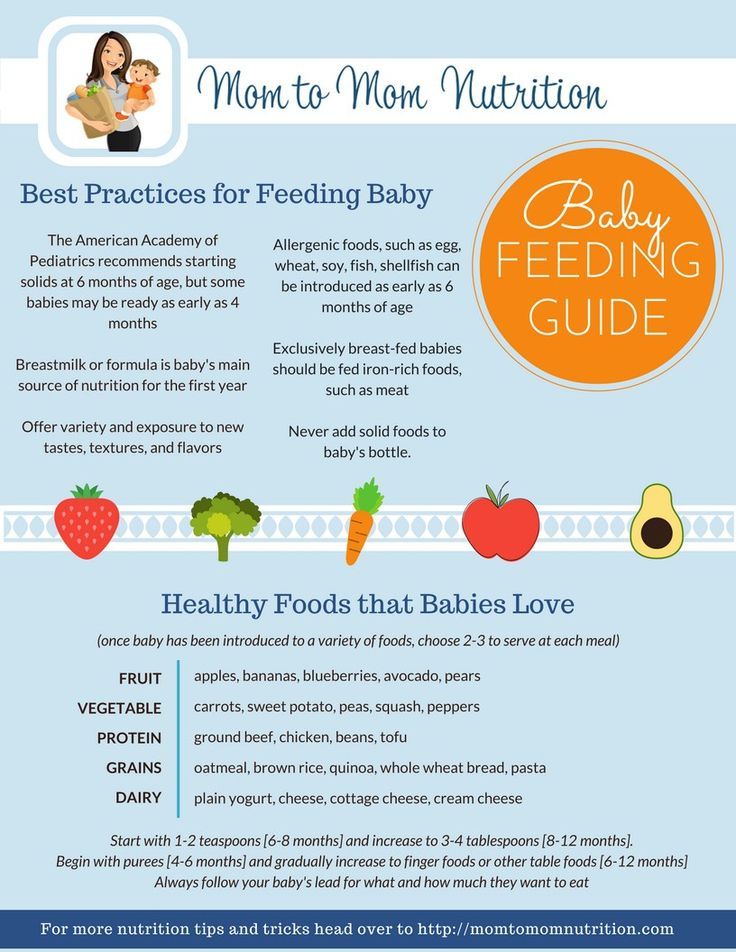 You can get these substances from dark green vegetables: spinach, broccoli, green beans, as well as dairy products, eggs, legumes, meat and fish. nine0003
You can get these substances from dark green vegetables: spinach, broccoli, green beans, as well as dairy products, eggs, legumes, meat and fish. nine0003
/life/laktaciya/
How much does breastfeeding cost? . In addition, the child is more likely to follow the family's eating style as they grow older. The more varied and healthier your diet, the greater the chances of accustoming a child to it. nine0003
But unhealthy eating habits can lead to future weight gain and negatively affect food cravings. A study of 1,459 mother-baby pairs found that high body mass index and unhealthy eating habits were more common among children whose mothers followed the so-called Western style of eating, which is high in ultra-processed foods, high-calorie, sweet and fatty.
What not to be afraid of in the diet
Mothers often blame their diet on the baby's restless behavior or minor skin rashes. nine0003
The American Academy of Pediatrics states that only 2-3 out of 100 breastfeeding babies are allergic to any food in the mother's diet.
But by blaming everything on food, we mask the real problem or, conversely, overestimate the significance of some ordinary phenomena, such as newborn acne or prickly heat. If in doubt what kind of rash it is, talk to a competent pediatrician. If the pediatrician suspects a connection between a child’s poor health and food, he will ask you to keep a food diary - this way there will be a potential culprit. nine0003
/colic/
How to help a newborn with colic
By eliminating this product for 1-2 weeks, you will either confirm the hypothesis or continue to look for another suspect. But you don’t need to immediately remove all the products: this can lead to an imbalance in nutrition, fatigue, nervousness and poor health.
If a pediatrician forbids eating certain foods without complaints about the child's well-being, this is a reason to look for a second opinion. Here are the foods that pediatricians often ban. nine0003
Cow's milk.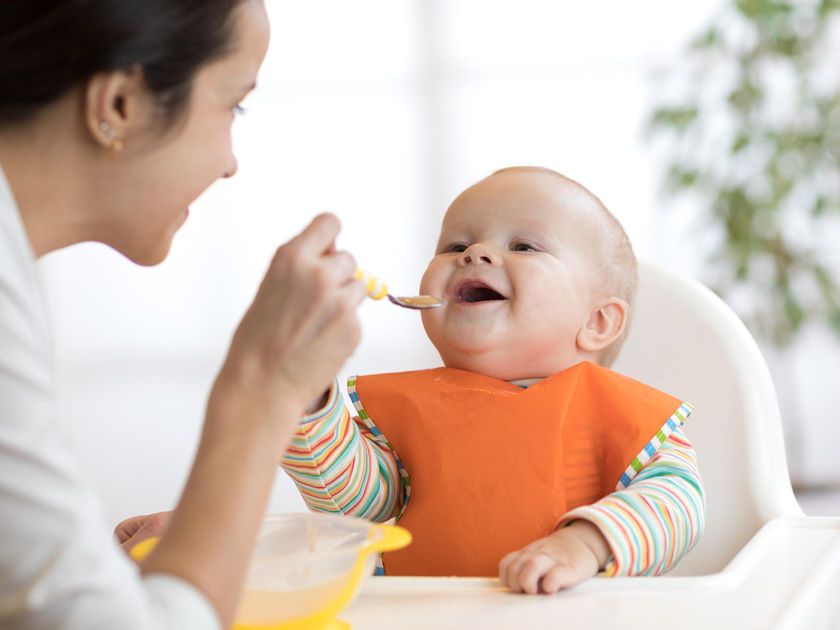 In those children who have a reaction to their mother's food, most often it happens to cow's milk: the baby may experience abdominal discomfort, colic, skin rash.
In those children who have a reaction to their mother's food, most often it happens to cow's milk: the baby may experience abdominal discomfort, colic, skin rash.
But excluding cow's milk in advance, just in case, will not lead to the prevention of allergies in a child. On the contrary, a 2021 Swedish study found that babies whose mothers drink relatively more cow's milk during breastfeeding have a lower risk of developing food allergies than those whose mothers drink little or no milk. The same is true for other potential allergens: if they are excluded, this will not help to avoid allergies in the future, but, on the contrary, will increase the risk of its occurrence. nine0003
No need to remove potential allergens from the diet
Valentina Suvorova
pediatric allergist-immunologist
There are foods that are potentially allergenic: milk, eggs, fish, peanuts, soy. To date, there is not enough scientific evidence to recommend that breastfeeding mothers restrict their diet.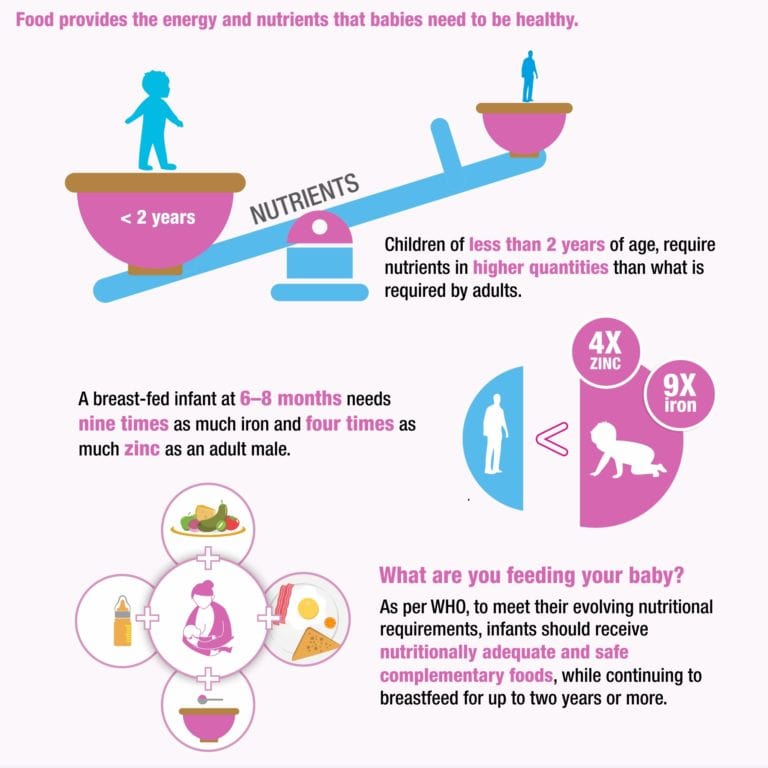 There are no differences in the prevalence of allergic diseases in the groups of nursing mothers who avoided milk, eggs and other allergens, and mothers who did not follow any diet. nine0003
There are no differences in the prevalence of allergic diseases in the groups of nursing mothers who avoided milk, eggs and other allergens, and mothers who did not follow any diet. nine0003
Fish. Separately, it should be said about fish: it is an important part of a balanced diet for any person, especially a nursing mother. Eating fish affects the proper development of the brain and nervous system of the child and reduces the risks of obesity, asthma and allergies in him at an older age.
Mom's fish intake and baby's cognitive development - MDPIPDF, 523KB
Omega-3s and reducing the risk of allergies in the unborn baby - PLOS Medicine
Two servings a week are enough to keep mother and baby healthy. One serving is your palm without fingers. nine0003
Limit swordfish, marlin, bigeye tuna, king mackerel or shark. This is due to the high risk of exceeding the permissible level of mercury in their meat. Such types of fish are rarely found in Russia, but if you live in another country or order them specially from afar, then show moderation.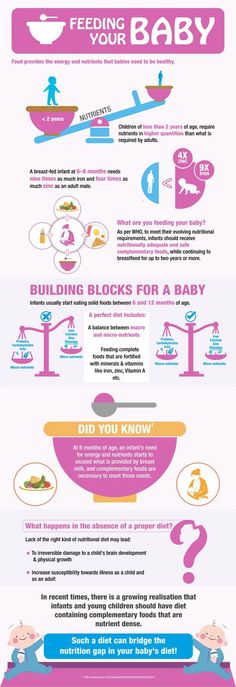 It is better to give preference to other options: salmon, herring, saury, cod.
It is better to give preference to other options: salmon, herring, saury, cod.
Foods that give mom gas. There is a myth that a mother and her baby have the same reaction to foods. In reality, gases from the gastrointestinal tract of the mother cannot enter the bloodstream and from there into breast milk, so the discomfort in the mother does not mean the obligatory colic in the baby. nine0003
However, when food is digested, certain proteins enter the bloodstream and can then pass into mother's milk. Some children may be sensitive to protein and react to it with increased gas production and nervousness. The reaction can be to any product, even to buckwheat or a green apple, and you can find out with the help of a food diary.
How food passes into breast milk - La Leche Liga
Garlic, spices, spices may change the taste of breast milk, but this does not mean that they should be eliminated. The breastfeeding support association La Leche Liga believes that regular consumption of these products will help the child get used to the family diet before introducing complementary foods.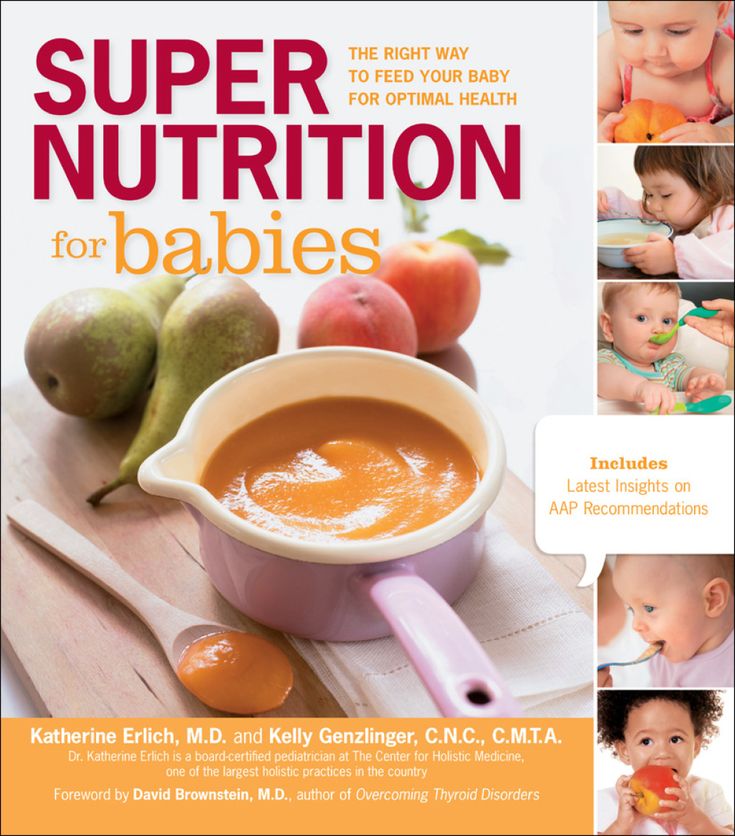 Babies begin to get used to these aromas even in the stomach, when they swallow amniotic fluid, so spices should not be ruled out during pregnancy. nine0003
Babies begin to get used to these aromas even in the stomach, when they swallow amniotic fluid, so spices should not be ruled out during pregnancy. nine0003
What should be limited in the diet
The probability that a child will feel bad from some product in your diet is small, but still there. Therefore, some products should be consumed in limited quantities, and some should be completely excluded for the GV period.
Alcohol. The safest option is not to drink alcohol during breastfeeding. The US Centers for Disease Control and Prevention believes that sometimes you can drink a glass of wine, but in the next 2 hours after drinking, you should not feed your child. Even without HB, there is no safe dose of alcohol, each glass is your personal choice and risk. And during breastfeeding, it is also a responsibility for the life and health of the baby. nine0003
Community 04.01.21
Is it true that wine is good for the heart and helps you live longer?
Thermally processed products of animal origin. These are fish, meat and eggs. If you eat them raw, you can become infected with dangerous bacteria: listeria, salmonella, or botulinum bacteria. They are not transmitted through breast milk, but are not safe for the mother herself - you will probably have to take antibiotics, and this may affect the preservation of breastfeeding. That is, it's not about the products, but about the cooking method: if you want a steak, don't deny yourself, but ask for a well-dan. nine0317 The same with sushi and lightly salted fish: take baked rolls or hot types of fish, and instead of poached eggs - normally boiled.
These are fish, meat and eggs. If you eat them raw, you can become infected with dangerous bacteria: listeria, salmonella, or botulinum bacteria. They are not transmitted through breast milk, but are not safe for the mother herself - you will probably have to take antibiotics, and this may affect the preservation of breastfeeding. That is, it's not about the products, but about the cooking method: if you want a steak, don't deny yourself, but ask for a well-dan. nine0317 The same with sushi and lightly salted fish: take baked rolls or hot types of fish, and instead of poached eggs - normally boiled.
Coffee. The recommended amount of caffeine is up to 300 mg per day. How many mugs it is depends on the method of preparation. The baby may have a reaction to coffee, as well as to any product, but this is an infrequent occurrence.
How much caffeine is in a cup of drink
| Drink | Amount of caffeine, mg | nine0390
|---|---|
| Instant coffee | 100 |
| Americano, cappuccino | 80-90 |
| Can of Coke, 330 ml | 40 |
| Green tea | 30-50 |
Drink
Number of caffeine, mg
Soluble coffee
100
Americano, Kapuchino
80–90
Coca-Cola Bank, 330 ml
40
Green tea
30-50
What is the result
The diet of a breastfeeding mother is a myth.